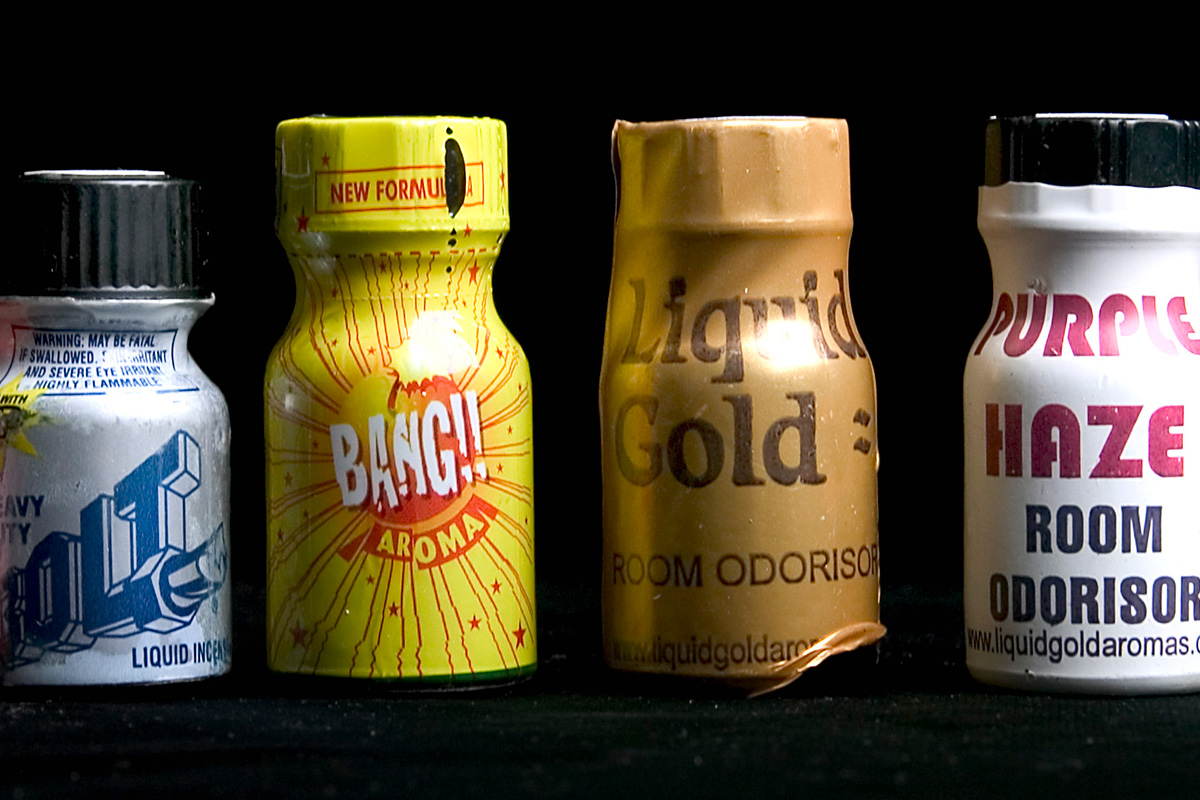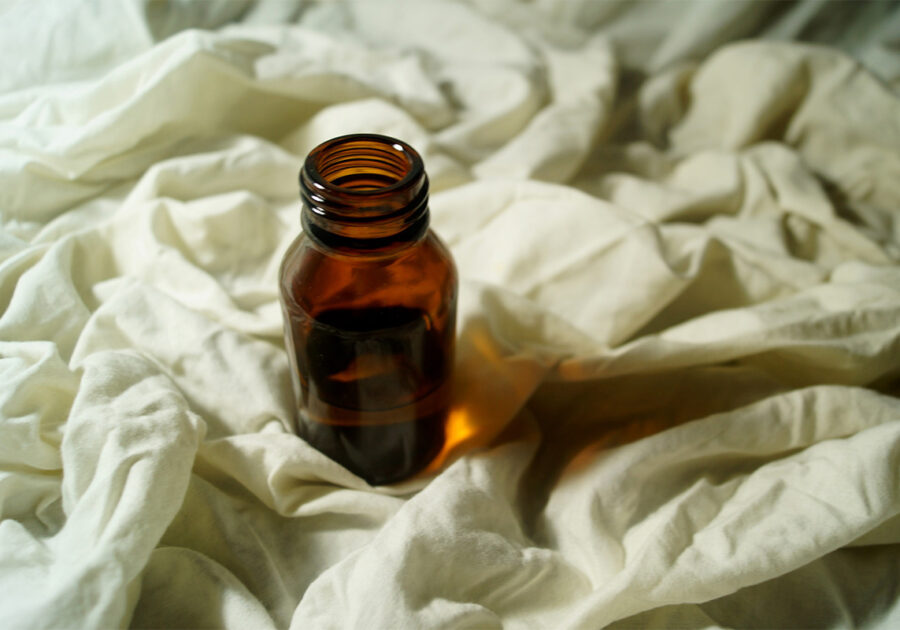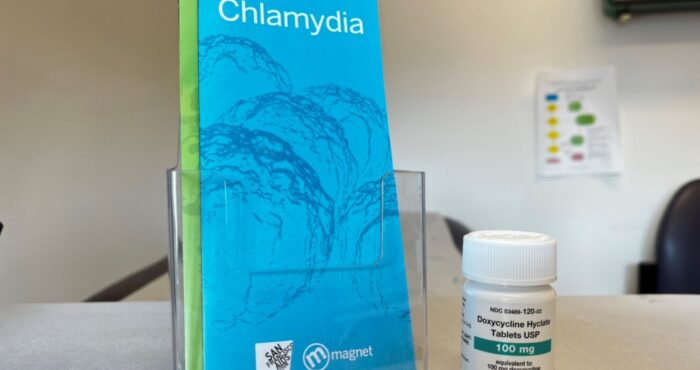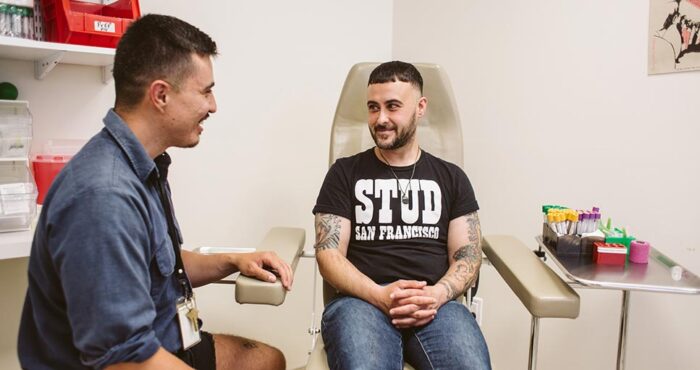Should we care that the FDA is going after poppers?

Poppers – those little bottles of liquid magic that have been the unsung hero of gay nightlife since forever – are now apparently Public Enemy Number One. That’s why Double Scorpio, the beloved poppers manufacturer, just announced they’re shutting down after a dramatic Federal Drug Administration (FDA) raid that screams “we’re definitely not targeting the gay community… wink wink.”
“Because nothing says ‘public health’ like raiding a company that’s been keeping bottoms relaxed and dance floors wild for decades,” says Austin, a San Francisco community member and client at Magnet, SFAF’s sexual health clinic.
Let’s rewind: Poppers, the common name for alkyl nitrites, have a complex history in American culture and law. Once prescribed for heart conditions in the 1960s, they entered gay nightlife scenes of the 1970s and ’80s for their brief euphoric effects and muscle-relaxing properties. They’ve existed in a legal gray area since 1969, when the FDA first restricted amyl nitrite to prescription-only status.
I will share that there have been hospitalizations and deaths directly linked to their use, with risks ranging from acute medical emergencies to long-term health complications. But for most healthy people who use traditional nitrite poppers for sex, the risks are relatively benign. Some people are using them wrongly, and ingesting them. Don’t do that. And definitely read up on the other ways to reduce potential harm if you are going to continue to use poppers.
What’s more concerning about Double Scorpio’s shutdown is the timing. The FDA’s sudden crackdown on poppers becomes particularly suspicious given that its new leader, Robert F. Kennedy Jr., has a documented history of spreading false claims about these substances.
RFK Jr. himself, has previously promoted the idea that falsely links poppers to AIDS. It’s a theory that has long since been scientifically disproven. It now raises the question: are poppers being scrutinized because of a widely debunked claim that they cause AIDS? Has RFK Jr. not gotten any new information about HIV and AIDS since 1986?
At the start of the AIDS epidemic, some in the medical community asserted that poppers might be the cause of the strange new disease. This false narrative placed blame directly on gay men and queer communities, instead of on the many ways the health system was failing LGBTQ+ people, causing immense harm. These narratives also portrayed gay sexuality as inherently dangerous and self-destructive–almost suggesting that gay men were “killing themselves,” therefore unworthy of compassion and a greater societal response to end the epidemic.
What makes Kennedy’s rhetoric especially dangerous is his platform. As a prominent public figure and now Secretary of Health and Human Services, his words carry significant weight. When he resurrects these discredited theories, he’s not just expressing a personal opinion–he’s potentially influencing public health policy, medical research, and societal understanding of HIV and AIDS. His views have the power to further stigmatize communities who have already faced so much harm.
For those who lived through the AIDS crisis–who watched friends, lovers, and community members die while medical institutions and government officials ignored their suffering–Kennedy’s rhetoric is not just offensive. It’s traumatizing. It’s a reopening of a wound that never fully healed, a reminder of a time when the medical establishment treated gay men as disposable, when scientific misinformation was used as a weapon of social control.
So, should we be concerned? The community’s response is a mix of weary “pfft” and cautious resistance. Anthony, another Magnet client, shrugged as he told me, “The FDA has come for poppers before. We’re still here.”
Kalob, an Oakland resident, worries about what happens next. “No one’s really talking about the black market. Or how that’s going to make those products even more dangerous.”
Austin distills the core issue with surgical precision: “All we ask for is a public health agency that follows science, not stigma.” It’s a simple request—and yet, historically, it’s been anything but simple for our community.
The poppers raid might be about a small bottle, but the conversation is about something much larger: who gets to define public health and with what evidence, whose bodies matter, and whose experiences are deemed worthy of protection.











